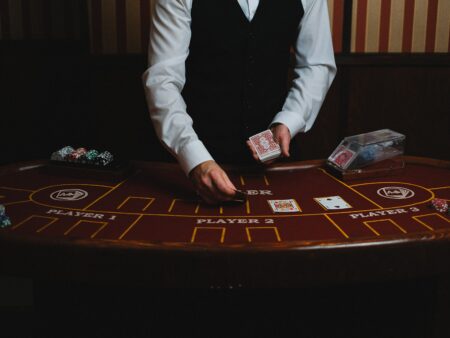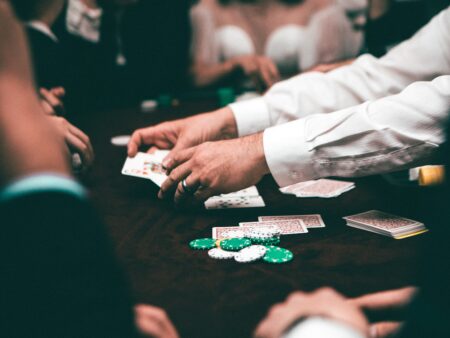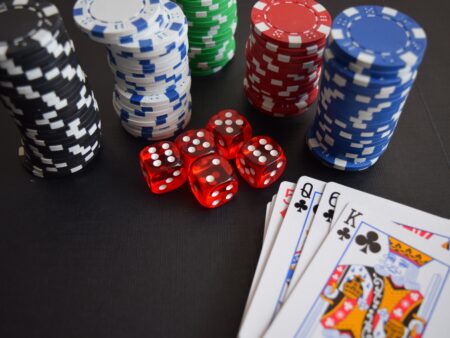Poker principles
Poker is one of very simple and transparent games and, contrary to other card sports (e.g. bridge), does not require presence of a referee or special supervisor. Every player can see the entire course of the game, and potential cheating or misuses are limited to the minimum.
In spite of this, entering an informal poker game or joining the poker room for fun, you should know the basic rules applicable in the world of professional poker. Thanks to this knowledge, you can easily detect novices and keep the image of an experienced shark…
- Try not to comment on other player’s decisions; if you really need to, limit yourself to positive remarks for right choices. Do not criticize inexperienced poker players or steps which seem unwise to you. Everyone can choose the way they play. The only way you can confirm your knowledge is by winning.
- If you deal cards, remember to let the person on the right hand side cut cards.
- If you go live, remember to „burn” cards – every time you are going to put subsequent cards (e.g. flop, river, turn in Texas), one top card gets „burnt” – put aside. This keeps the card secret.
- Keep all chips on the table, in front of you. In more serious tournaments it is necessary to arrange them and higher nominal values must be pushed forward so that the balance of your account in the game is easy to estimate for everyone. It is inappropriate to cover high nominal values with low values, particularly in similar colors.
- Do not comment on your cards before the end of the deal, particularly if you folded. This may be a precious tip for other players. Informing others about what you have just received and rejected is one of offenses for which strict tournaments may happen to punish you with a temporary ban.
- Announce your actions in a loud and clear way. Interesting tip: players often tap on the table with their fingers, which means „check” – if you are not sure whether the player on your right hand side has just acted like that or just taps because of thinking – ask and make sure. It is also not wrong to „question” a few players about how they acted before to understand the situation on the table.
- Do not show your cards to other players if you fold. If you have done so already, other players have a right to demand things and you need to follow the rule: „show one- show all” – you showed cards to one player, show them to all players.
- When raising, put the the entire amount of raise into the pot. If you want to do it „in stages”, to make sure it is clear how much you are going to raise (e.g. „…your 200 and 300 more at the to”) – at first clearly express the intention to raise and then add chips. Any other action may be considered as a check only.
- In case of more serious tournaments than a home poker game, do not comment on cards which come to the table in a way that may help less experienced poker players who stay in the game (e.g. oh, seven is here and someone may have a straight…”).
- Do not irritate other players by complaining about wrong actions or an exceptionally unlucky card which led to failure. Everyone saw it, everyone wants to keep playing. Look for sympathy in the group of fans, rather than players.
For more poker rules and good practices, see the website




